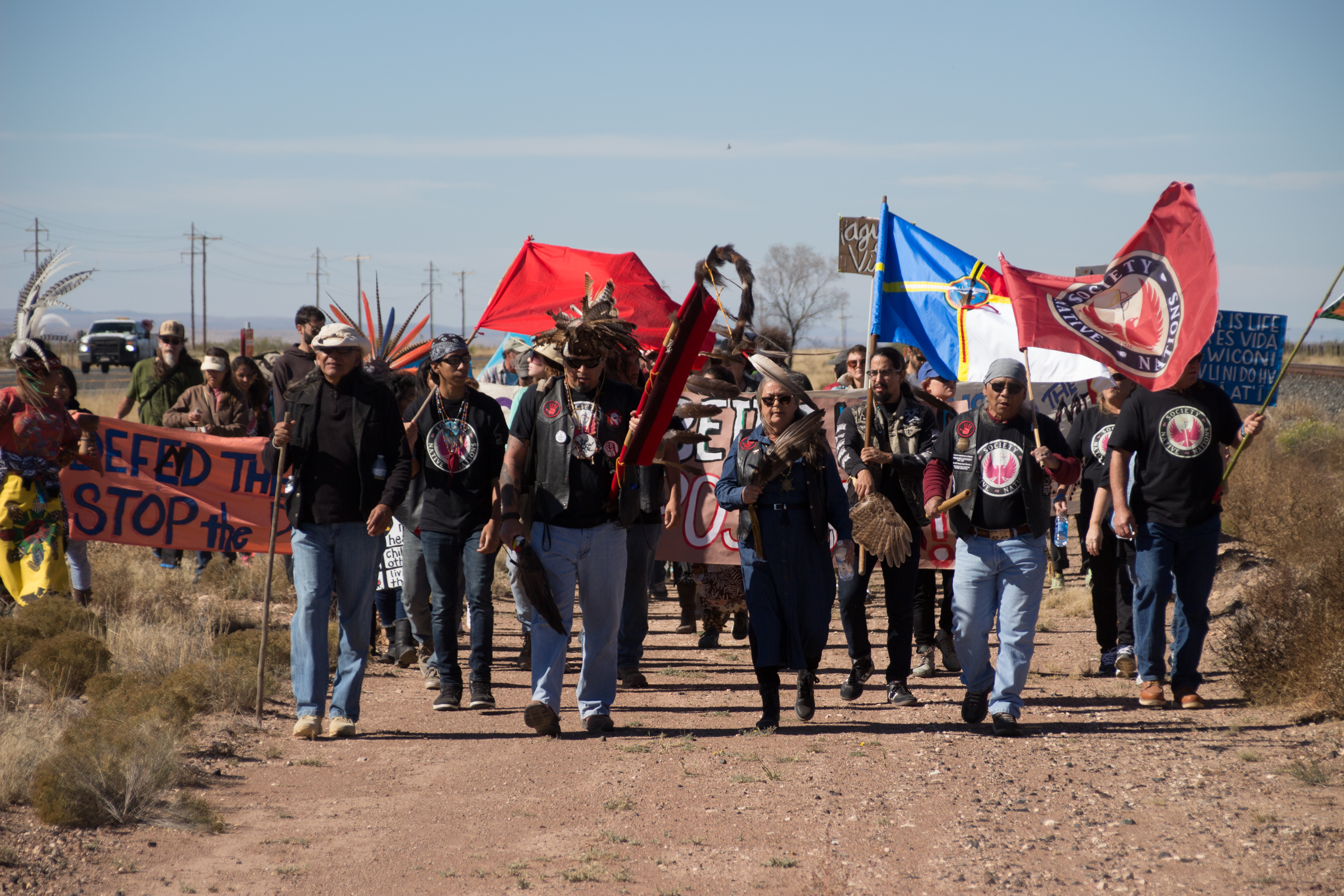
“It’s the Rio Grande. It’s sacred to many people.”
Greg Harman
Shortly after 4am on Monday, a small caravan of cars pulled up in front of a pipe yard on the west side of Alpine, Texas – until recently, a rare sight in this remote corner of the state. In the morning dark, Alpine resident Lori Glover clamped a U-lock around her neck and chained herself to an access gate. Roger Siglin and Arah Joe Battista did the same at other gates. Supporters gathered around and lit candles. They burned sage in a spirit of prayer and sang popular protest songs like “This Land Is Your Land” and “We Shall Overcome.” That’s when the Pumpco, Inc., employees began to arrive.
“They were stirred up like a nest of hornets,” Glover’s husband, Mark, told the Chronicle by phone. “They were going to each gate and peeling out and driving back and forth.”
It took a succession of bolt cutters to free the trio from the gates, said Mark, before Lori, 44, and Siglin, 80, were taken to Brewster County Jail, charged with criminal trespass, and released. (The two were offered the chance to walk away from the gates with no charges, but refused.) Battista, 30, chose not to be arrested.
Residents in Alpine have been resisting the pipeline for more than a year, but with trenching and welding finally reaching their front doors, their tactics have ramped up. “We just don’t want the oil and gas industry invading this area and changing the beauty of this place,” Lori Glover said before a November anti-pipeline march outside Marfa. “This is the last place in Texas that is untouched by oil and gas. And this project opens the door. We already see that.”
The Glovers helped found the organization Defend Big Bend – which operates as the Big Bend Defense Coalition today – to help galvanize resistance to the Trans-Pecos Pipeline being built by Dallas-based Energy Transfer Partners. It’s a planned 148-mile natural-gas pipeline intended to link the fracklands of West Texas’ Permian Basin to the deregulating Mexican economy to the south. Of course, to reach Mexico, it has to cross beneath the Rio Grande first. That is where – in an echo of the Standing Rock Sioux’s to-date-successful fight to block an ETP crude oil pipeline from crossing Lake Oahe, their primary drinking-water source – things could get difficult.
Read the full story at the Austin Chronicle.








